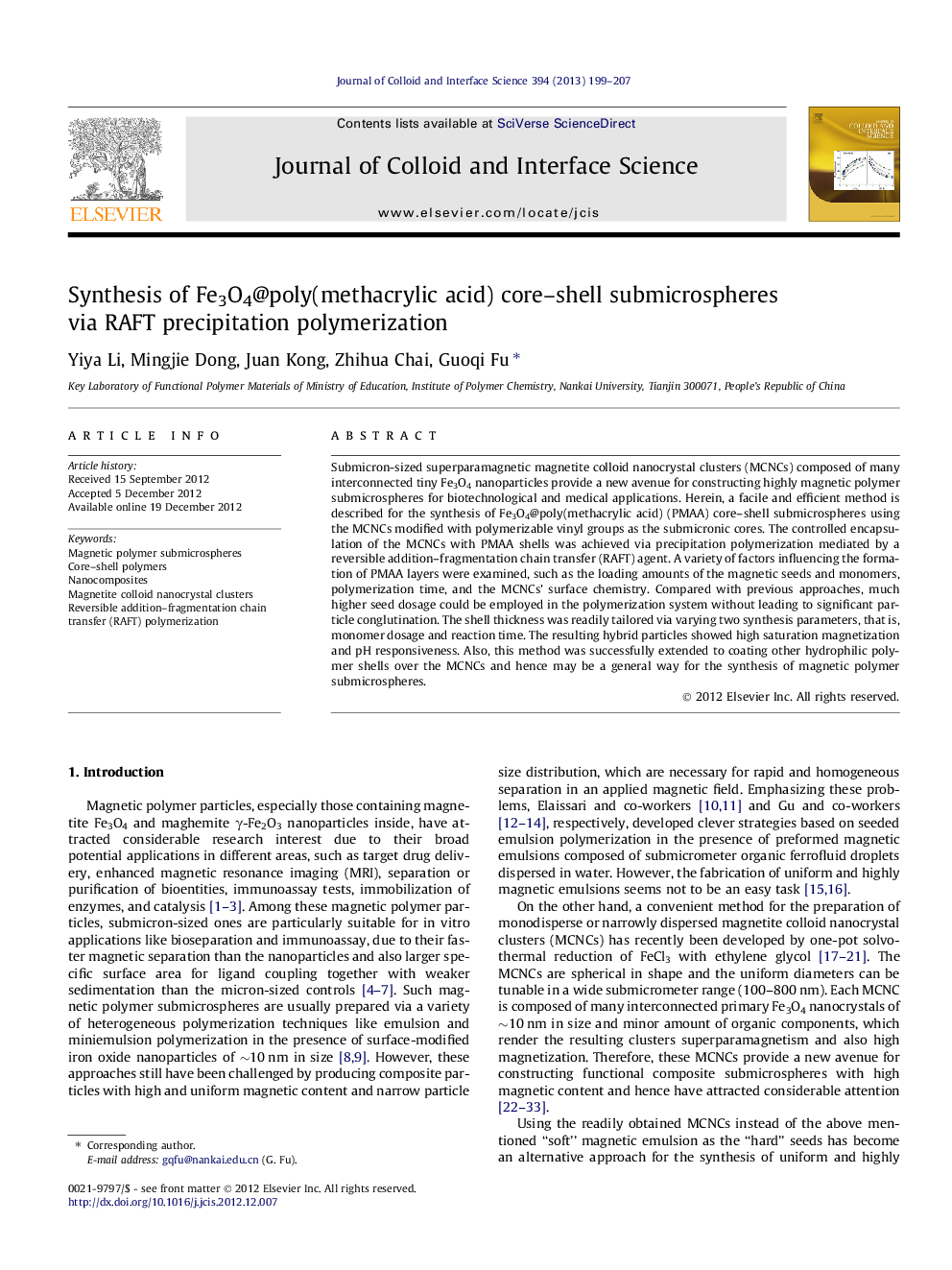| کد مقاله | کد نشریه | سال انتشار | مقاله انگلیسی | نسخه تمام متن |
|---|---|---|---|---|
| 607762 | 1454601 | 2013 | 9 صفحه PDF | دانلود رایگان |

Submicron-sized superparamagnetic magnetite colloid nanocrystal clusters (MCNCs) composed of many interconnected tiny Fe3O4 nanoparticles provide a new avenue for constructing highly magnetic polymer submicrospheres for biotechnological and medical applications. Herein, a facile and efficient method is described for the synthesis of Fe3O4@poly(methacrylic acid) (PMAA) core–shell submicrospheres using the MCNCs modified with polymerizable vinyl groups as the submicronic cores. The controlled encapsulation of the MCNCs with PMAA shells was achieved via precipitation polymerization mediated by a reversible addition–fragmentation chain transfer (RAFT) agent. A variety of factors influencing the formation of PMAA layers were examined, such as the loading amounts of the magnetic seeds and monomers, polymerization time, and the MCNCs’ surface chemistry. Compared with previous approaches, much higher seed dosage could be employed in the polymerization system without leading to significant particle conglutination. The shell thickness was readily tailored via varying two synthesis parameters, that is, monomer dosage and reaction time. The resulting hybrid particles showed high saturation magnetization and pH responsiveness. Also, this method was successfully extended to coating other hydrophilic polymer shells over the MCNCs and hence may be a general way for the synthesis of magnetic polymer submicrospheres.
Figure optionsDownload high-quality image (113 K)Download as PowerPoint slideHighlights
► Facile control over the thickness of PMAA shells.
► Relatively high loadings of magnetic seeds in the polymerization system.
► A general method for constructing highly magnetic core–shell polymer submicrospheres.
Journal: Journal of Colloid and Interface Science - Volume 394, 15 March 2013, Pages 199–207